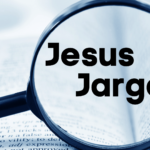Join Pastors Clint and Michael as they explore the terms “Conservative” and “Liberal” from the Christian perspective. You may be surprised to discover that these two labels have existed in some measure throughout the history of the church and a robust understanding of each enables us to see how God has providentially led the church through very different times and seasons. Though we live in a particularly politically charged moment, Christians would do well to understand how these labels can function as a tool to empathetically understand each other instead of cultural battle lines within the Christian church.
Be sure to subscribe and share with others so that they too can be part of the Pastor Talk podcast!
You can watch video of this and all episodes from this “Jesus Jargon” Lenten Pastor Talk Podcast series in our video library. Learn more about the Pastor Talk Podcast, subscribe for email notifications, and browse our entire library at fpcspiritlake.org/pastortalk.

